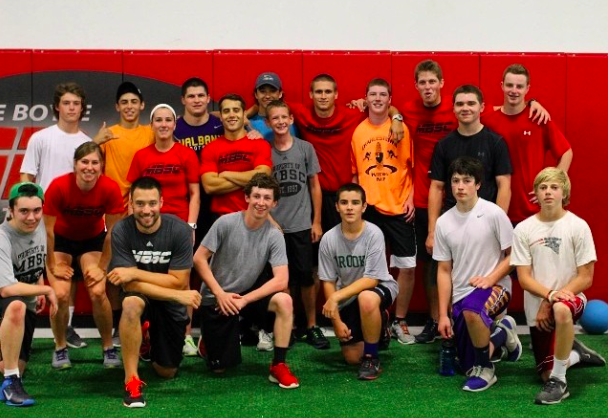Coaching Character
“One of the great myths in America is that sports build character. They can and should. Indeed, sports may be the perfect venue in which to build character. But sports don’t build character unless the coach has it and intentionally teaches it”
– Joe Ehrmann
“Are you our Mentor this session?”…..
The bright-eyed, thinly built 13 year-old hockey player stared upward, grasping a foam roller as he anxiously awaited a response. On the spot and taken by surprise, one of our newly hired coaches stammered back “Uhh, yeah I’m your coach, uhh I mean mentor for the 3:30 group.”
I’ll never forget overhearing that exchange. Seeing the look of confusion on the young coach’s face, I pulled her aside and explained that the choice of the boy’s words represented more than just a redefinition of her role as “coach.” The shift in title really represented a shift in mindset, something far more transformative.
The impact of good coaching stretches far wider than developing stronger legs and lungs. First and foremost it is our responsibility as coaches to develop great people before we develop great athletes. The training effect that comes from teaching respect, character, work ethic and accountability will last long after our athletes hang up the cleats and retire to life outside of competitive athletics.
I credit Brendon Rearick for putting this technique into practice at MBSC. Inspired by the idea of “Transformative Leadership” from the book “Inside Out Coaching” by Joe Ehrmann, Brendon began reframing his role with his athletes. Consistently, Brendon would refer to himself as the “mentor” of the athletes in the 3:30 high school group. A term the athletes soon grew to embrace to the point that they no longer referred to him as “coach.”
What’s important to understand is that it wasn’t Brendon’s verbal declaration that made the difference in his relationship with his athletes, it was the character that he displayed. Brendon’s attitude and actions positioned him to be viewed as more than just a strength and conditioning coach by the athletes he interacted with.
Middle school and high school athletes are especially moldable creatures. Adolescence is a time of rapid physical and mental maturation, a period in which many kids are quietly begging to be given direction.
Returning to the quote at the beginning of this article, the section I particularly love is..
“Sports don’t build character unless the coach has it and intentionally teaches it.”
Bad coaches can be as damaging as great coaches can be enriching. Your impact on your athletes starts with your core values, extends through the direction of your attitude and finishes with your outward behaviors.
Ask yourself….
Did I show up on time?
Did I coach hard for the whole training session?
Was I respectful to everyone I interacted with?
Did I clean up after myself?
Am I consistently over delivering?
If you cannot answer yes to all of these questions then how can you ask your athletes to do the same? As a coach and a leader you set the bar, you are the mirror your athletes will see themselves in.
Mike Boyle always reminds the staff at MBSC about something that he calls “The 20 Year Window.”He says ” You’ll never know the impact you are having when it’s happening but 20 years later you will hear about it. Remember everyday you go to work that you have the ability to change lives.”

